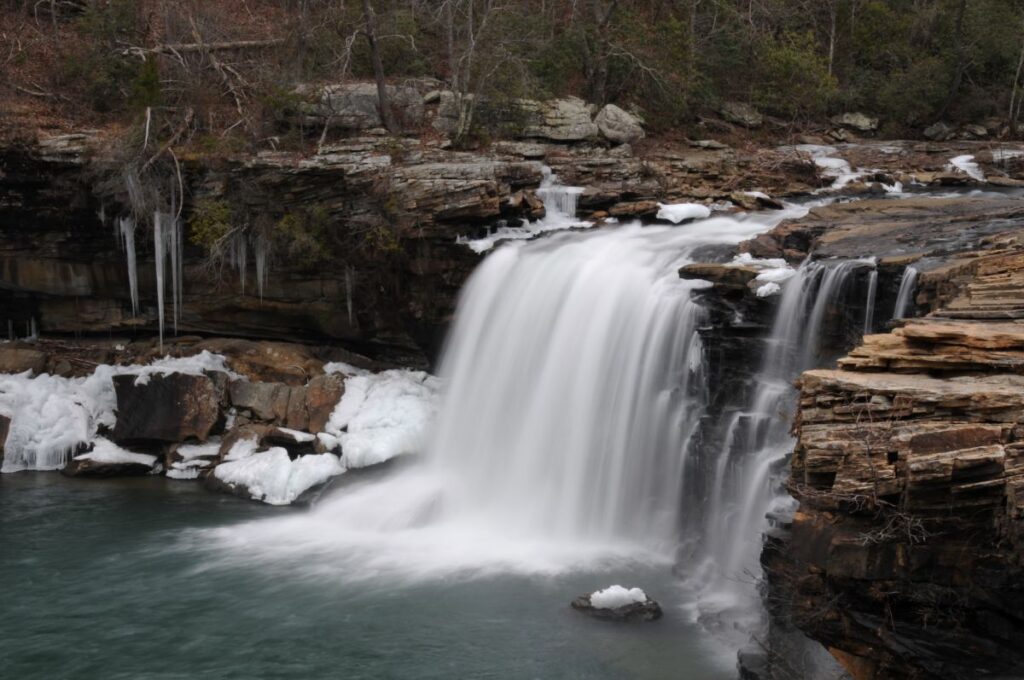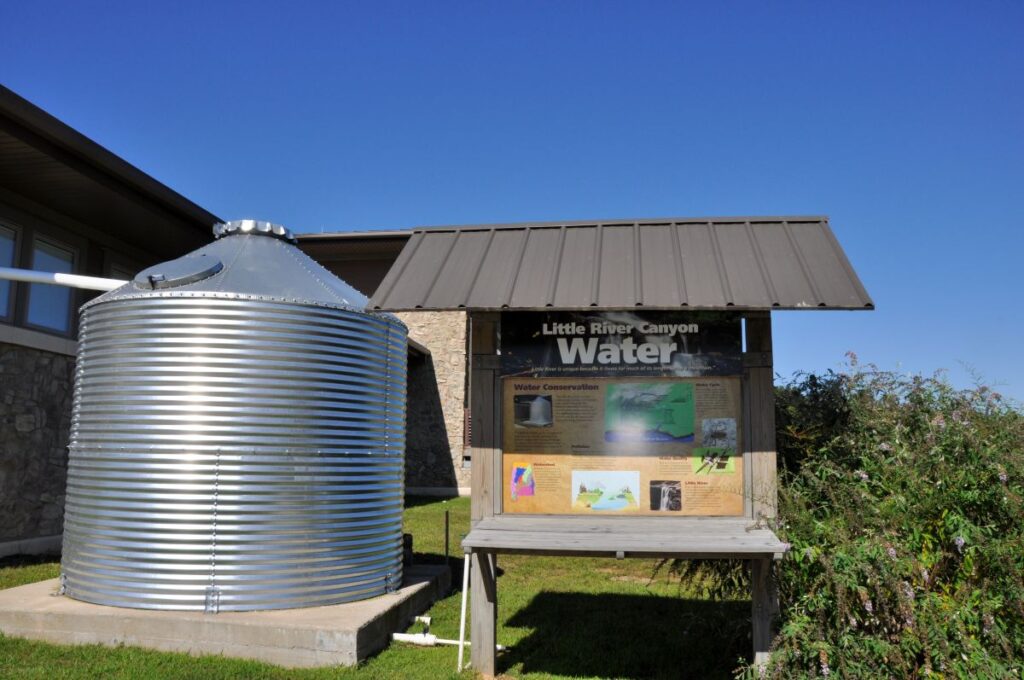Economy
Federal Cuts Could Hit Alabama’s Little River Canyon, Other Parks

Donate today to help Birmingham stay informed.
At least 11 National Park Service employees and a lease at one visitors’ center in Alabama have been terminated by the Trump administration’s government efficiency office. Advocacy groups say park visitors are likely to see negative effects this summer and communities that depend on tourism dollars could feel an economic pinch.
Nationwide, the already-understaffed Park Service has lost more than 1,000 people – or 9% of its workforce – in the past month, and the administration plans to shutter 34 offices that function as visitor centers, law enforcement offices, museums and other facilities critical to park services, according to the National Park Conservation Association.
“Quite simply and astonishingly, this is dismantling the National Park Service as we know it, ranger by ranger and brick by brick,” said Theresa Pierno, president and CEO of NPCA.
No official data is available on the number of Park Service staffers who have lost their jobs or the number or names of parks affected because the Park Service has not released that information and has instructed employees not to discuss the cuts, said Eboni Preston Goddard, Southeast regional director for NPCA, and Bill Wade, executive director of the Association of National Park Rangers.
Multiple employees of parks in Alabama referred BirminghamWatch to national or regional Park Service public information officers, who did not respond to messages.
According to information ANPR gathered from people who were terminated or spoke on condition of anonymity, cuts among the 11 National Park sites in Alabama include:
- One staff member at Horseshoe Bend National Military Park.
- Eight staff members of the Natchez Trace National Scenic Trail, which runs through Alabama, Mississippi and Tennessee.
- Two staff members at Russell Cave National Monument.
While some terminated employees were park rangers, Goddard said those who lost jobs reflect the gamut of work performed inside national parks.
“We’ve seen a geologist, we’ve seen wildlife biologists, we’ve seen maintenance folks,” she said.
John Dersham, executive director of DeKalb County Tourism in northeast Alabama, confirmed that one employee who worked at both Little River Canyon National Preserve and Russell Cave National Monument was fired. There are now seven National Park Service staff members to serve both parks, Dersham said.
Because the parks were already understaffed, losing one employee could have noticeable effects, Dersham said. For instance, Park Service employees are responsible for picking up litter and mowing grass alongside the 11-mile Little River Canyon Rim Parkway.
“It’s going to result in some significant maintenance issues, environmental protection issues,” he said, “especially if it goes any deeper than it already is.”
Dersham said he worries additional staff cuts could lead to reduced visitor hours or parts of the park being closed.
That’s already happening at some parks across the country, Wade said. “We are seeing instances where, because of the terminations, some parks have had to make adjustments in the hours or even the days for visitor centers,” he said. “In some cases, custodial work might be affected – keeping public restrooms clean, picking up trash, that sort of thing. And then, there are scientific or research projects that have been going on in parks and conducted or supported by somebody who got terminated.”
Goddard expects long lines to enter some parks and closures of facilities such as restrooms and of trails and other recreational areas because of maintenance or safety concerns.
“And that’s so unfortunate, given the increase in visitation numbers that came out earlier this week,” she said. “People are going to parks in record-breaking numbers. So, for us to be hit with the intersection of all this at that same time is a really tough blow.”
After backlash to the staffing cuts, the Park Service said in a memo it would hire 7,700 seasonal workers, which is more than the three-year annual average of 6,350.
As the busy summer season approaches, Wade said, having those seasonal employees will help, but he is skeptical they will be fully trained until well into the season.
“There’s going to be a delay in getting things back up to full speed for the visitor-use season this year,” he said. “What happens when those seasonals go off duty is we’re back to a Park Service that was already understaffed before all of this took place being even further understaffed.”
Goddard said she’s happy the administration increased the number of seasonal employees the Park Service can hire to serve in such roles as lifeguards and fee collectors. But, she said, “It’s a Band-Aid to much larger problems. There’s so much institutional knowledge that will be lost with these folks that were cut.”

Fate of Little River Canyon Center
The National Park Service’s lease for space in the Little River Canyon Center is on the Department of Government Efficiency’s list to be terminated as of the end of the year. The center serves as the visitors’ center and National Park Service Headquarters for Little River Canyon National Preserve. Jacksonville State University owns the center, and JSU and National Park Service staff jointly operate it.
The center features a theater, natural history library, exhibits, classrooms, outdoor amphitheater and trails, and it’s the place where visitors can obtain permits and learn how to safely enjoy the canyon, waterfalls and river.
Dersham said the National Park Service leases 40% of the center, including a board room and offices for five or six Park Service employees and the park superintendent, who also oversees Russell Cave National Monument.
According to the DOGE website, the National Park Services pays $78,000 per year to rent 5,300 square feet in Little River Canyon Center.
“My personal perspective is JSU needs that money to pay for that building,” Dersham said.
He said Park Service staff are in the dark about what will happen next. “The Trump administration doesn’t tell them anything,” Dersham said. “They say, ‘You’re losing your lease.’ That’s it. They don’t have any answers.”
Last week, JSU President Don Killingsworth Jr. and Pete Conroy, director of the Little River Canyon Center, released statements saying the center will not close.
“It would be hard to imagine a Canyon Center without the NPS, but regardless, it will not shut down because JSU owns the Little River Canyon Center and JSU’s president is committed to keeping it open,” Conroy wrote in a March 8 Facebook post. “Since 2009, the National Park Service has partnered with us, sharing responsibilities in education, visitor services, law enforcement and community outreach. We are proud of this unique collaboration, which has served countless visitors and was recently recognized for its astonishing economic impact, nearly reaching $500 million since 2012.”
In his statement, Killingsworth said JSU’s role in managing and maintaining the center will remain unchanged despite closure of the National Park Service offices there, and no disruptions to JSU’s services, educational programs or community engagement efforts are anticipated.
But questions remain about how Park Service operations will continue after this year.
Before the center opened, the Parks Service rented office space in downtown Fort Payne, about 7 miles from the canyon.
Tourism is a leading economic driver in DeKalb County, with overnight visitors spending nearly $160 million in the area in 2023, the most recent year for which data is available, Dersham said. Tourists also pay lodging taxes that go to the state of Alabama and DeKalb County.
Of approximately 1 million tourists who visited the county in 2023, 80% went to the national preserve, Dersham continued. With the exception of dips during the 2008 recession and one year of the COVID-19 pandemic, tourism has grown in the county every year for the past three decades, he said.
But the federal government’s decisions could affect those numbers, he said, if the national preserve becomes less accessible or appealing to the public. If people shift their recreation activities to places besides national parks, the parks will lose funds, but there also will be ripple effects throughout local economies, Goddard said.
“That community loses that revenue as well because they (tourists) are not going to eat there; they’re not going to sleep there,” she said.
Goddard said she is appreciative of people who have used NPCA’s advocacy form to ask their representatives in Congress to protect national parks.
Wade said he places his hope in that kind of reaction from the public.
“I think it’s safe to say that the only thing that’s going to turn this around is if the public gets concerned enough about – and angry enough about – what’s happening to the parks and to their experiences in parks, that they begin to take action by contacting their elected officials and demanding that some changes take place,” he said.



